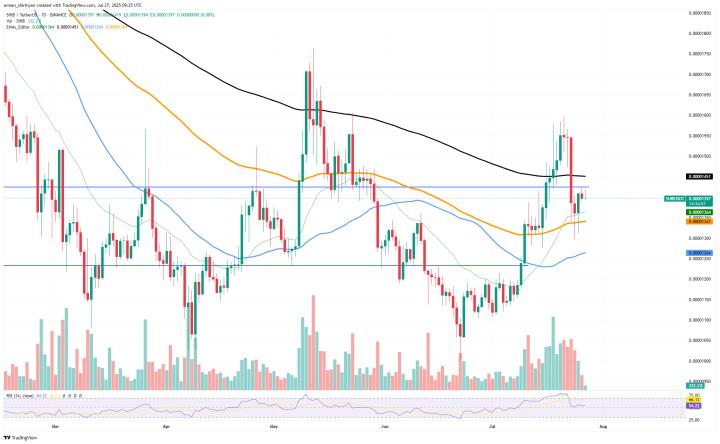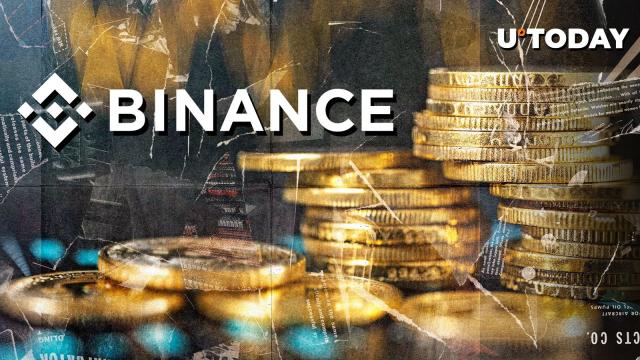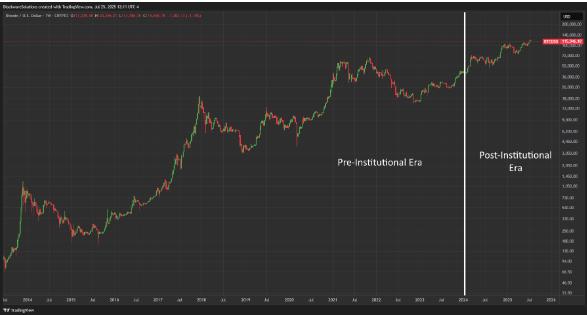Recent developments show positive progress towards creating physical cryptoasset ETFs after major providers submitted amendments.
SEC initially approved cash conversion for Bitcoin and Ethereum ETFs.
Wall Street About to Benefit as SEC Moves Closer to Approving Physical Crypto ETFs
Major providers have submitted amendments to create and exchange physical Bitcoin and Ethereum ETFs. They want to shift from the current mode where customers provide cash to the issuer to receive new ETF shares, after which the issuer buys Bitcoin.
Instead, issuers or providers want customers to bring BTC or ETH to the issuer in exchange for ETF shares.
According to Bloomberg's ETF analyst, James Seyffart, this is a positive signal indicating progress in the review process.
"More positive signs that Bitcoin & Ethereum ETFs are likely to do in-kind creation and redemption. 5 different funds on CBOE have filed amendments with SEC. This tells me there is positive movement and likely adjustments happening with SEC," wrote Seyffart.
If approved, the ETFs could start processing creation and redemption using actual cryptoassets instead of cash. This move will enhance efficiency, bringing crypto ETFs in line with traditional ETP structures.
These five funds include Ark 21Shares, Fidelity, Invesco Galaxy, VanEck, and WisdomTree. The implementation of ETF amendments from these major names suggests institutional money may be eager to participate.
Notably, in the initial race for Bitcoin ETFs, the referee in the match, the US SEC, decided that cash creation was the way forward, rather than physical (crypto) exchange.
However, there is a general preference for physical creation, also called crypto exchange, with regions like Hong Kong quickly pushing the first-mover advantage compared to the US from the start.
Despite initial interest from issuers, they prioritized approval over their own method, accepting cash exchange to meet SEC requirements. At that time, ETF analyst Eric Balchunas agreed with this compromise.
"Cash creation makes sense IMO because brokers can't trade Bitcoin so cash creation puts the onus on issuers to trade Bitcoin and keeps brokers from having to use unregistered subsidiaries or third-party companies to trade BTC. Less restrictive for them overall," he said at the time.
Why SEC Chose Cash-Creates
Looking back, the SEC's preference for cash exchange stemmed from money laundering concerns. With this choice, only issuers process Bitcoin, keeping unregistered intermediaries like brokers at bay.
"SEC is concerned about ETFs being used as a vehicle for money laundering," Charles Gasparino, senior Fox Business News reporter, explained.
Additionally, cash exchange transfers Bitcoin transactions to issuers, as SEC blocks brokers from directly Spot Trading BTC ETFs.
Retail Investors Excluded from Crypto ETF Access, Limited to Wall Street Companies
However, a concern arises as retail investors are currently locked out.
"Does this imply retail investors have a way to do in-kind exchange? Guess brokers will have to support physical trading," a user commented in a post.
According to Seyffart, retail investors should not be too excited about the perception that physical creation is being accepted. He said this change will benefit authorized participants (APs), suggesting Wall Street firms and possibly even market makers.
This means only large institutions can trade ETF shares directly with underlying cryptoassets. In this context, Seyffart says most customers will not see a significant difference, as crypto ETFs are already trading with narrow spreads.
"…most people will not see a difference because the products in the market today are trading extremely efficiently. This will treat crypto ETPs like other ETPs are treated," he noted.
However, there is still reason for optimism with the ETF analyst predicting the sending and withdrawal of actual tokens like BTC or ETH with issuers, but in the distant future.
"This has existed for some Gold ETFs," Seyffart revealed.
Currently, issuers or providers view physical exchange as a potential upgrade for institutional players, potentially laying the groundwork for broader retail investor access.







